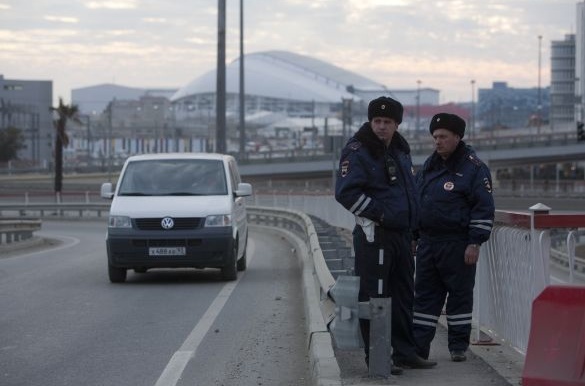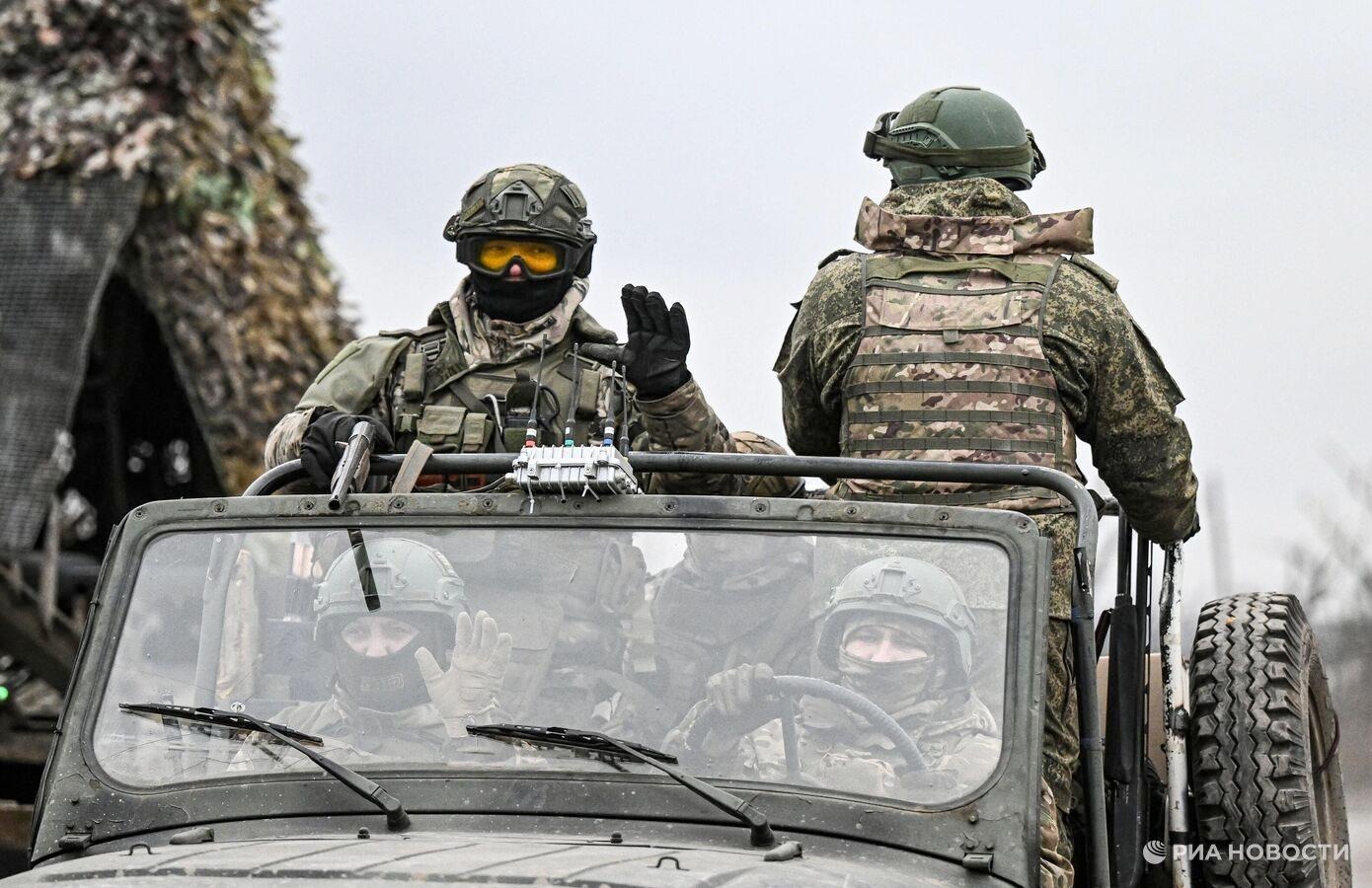
Misplaced and Miscalculated Risk Assessments of Putin’s Games
Misplaced and Miscalculated Risk Assessments of Putin’s Games
The pre-planned introduction of an extra-tough security regime around Sochi last Tuesday (January 7) has brought an escalation of concerns about safety at the 22nd Winter Olympic Games, which will open in this sub-tropical resort on February 7. While Russian mainstream media sticks to the official line of strictly choreographed joy, more skeptical Western views find their way to the less controlled Internet media—and then bounce back to the West in increasingly alarmist reflections (https://newsru.com/russia/08jan2014/sochi2014citadel.html). The sober warning issued by the US State Department and the announcement of the Federal Bureau of Investigation (FBI) about sending some 30 agents to Moscow and Sochi were immediately picked up by Russian tabloids as proof positive of a high threat of terrorist attacks (Moskovsky Komsomolets, January 11). In fact, however, the athletes, journalists and the carefully screened fans will most probably be perfectly safe in Sochi. Nevertheless, the anxiously anticipated games can still be spoiled.
The heavy rain in Moscow last week served as a reminder that capricious weather might ruin the outdoor competitions in Sochi, which has never been associated with winter sports. Moreover, the massive deployment of security personnel of every imaginable kind—from air defense units to Cossack patrols—may inevitably result in dangerous cases of miscommunication, since any minor incident might trigger an entirely disproportionate response. Indeed, the psychological stress of a long-lasting high-security alert increases the possibility of false alarms, which could interrupt the heavily loaded schedule of ceremonies. Sochi has been so fortified by high fences, check-points and “no-go” zones that it resembles a besieged fortress, except that no standing army is actually besieging (https://echo.msk.ru/blog/svetlana_sochi/1233912-echo/). Any attempt to stage a micro-protest, for instance in support of gay rights, is certain to be treated with extreme prejudice. The atmosphere may, therefore, be even more oppressive than it was at the Moscow Olympics in 1980, when Vladimir Putin was running his first errands as a KGB lieutenant
(https://grani.ru/opinion/abarinov/m.223213.html).
This time around, it is even more important to isolate the Olympic “safe haven” from the rest of the country because many angry rebels see the games as a unique opportunity to make a heavy impact on this top-priority political project. Putin hoped to use the games to demonstrate that the war in the North Caucasus was brought to an end, but an average week in this zone of non-stop “special operations” results in 15 casualties in armed clashes and explosions (https://www.kavkaz-uzel.ru/articles/236256/). After the double attack in Volgograd on December 29 and 30, the security apparatus was geared toward preventing new suicide bombings, but terrorists simply staged a different kind of attack—and in a different place. Four abandoned (and crudely mined) cars with six bodies were found in Stavropol Kray on January 8, and the police first took it for a criminal shoot-out, so the counter-terrorist alert was sounded too late and brought no result (https://lenta.ru/articles/2014/01/10/stavropol/). It is impossible to predict what tactics the rebels will opt for this week and where will they strike the week after. But it is nonetheless clear that the more security resources and manpower are concentrated in Sochi and in Moscow, the less secure the rest of the country becomes.
Besides the resonance from terrorist strikes, the festivities in Sochi are also affected by the reaction in the traumatized communities across the country. Russians’ fears of further attacks by networks of Islamist extremists invariably also expands into dark suspicions against all “migrants” from the North Caucasus. These grassroots tensions are fanned into ugly xenophobia by the officially demonstrated devotion to the Christian Orthodox Church, which translates into huge lines of worshipers in front of the Christ the Savior Cathedral in Moscow (https://slon.ru/russia/mngochasovaya_ochered_k_daram_volkhvov-1041727.xhtml). The more President Putin propagates his ideology of “conservatism,” which rejects such liberal Western values as tolerance or secularism, the deeper run the schisms in the fragmented society. Consequently, Muslims feel discriminated against while liberals become alienated from the resolutely anti-modern politics (https://ej.ru/?a=note&id=24072). The loud fanfare of propaganda regarding Sochi produces more irritation and angst within the Russian Federation than the desired feeling of national unity.
This irritation is exacerbated by the exorbitant expenses devoted to staging this enormously hyped event, increasingly seen as a manifestation of Putin’s vanity. The stagnating economy, in which even government economists cannot find sources of growth, provides a depressing background for the big business of the Olympic Games, particularly since the scope of stealing has set a world record (Kommersant, January 8). The feeding frenzy of embezzlement has caused massive delays in construction projects. Meanwhile, the continuing rush to make everything picture perfect and plaster over the faulty structures creates a high risk of technical failures and accidents, which could become yet another spoiler for the corrupted exploitation of sport achievements for ignoble political purposes (https://svpressa.ru/society/article/80344/?mra=1). The Olympic expenditures will not bankrupt Russia. But they do heavily contribute to fears of economic decline and underpin the perception that the best opportunity to put Russia back on track has been wasted on ludicrous self-aggrandizement.
Putin still imagines that the Olympic triumph will continue the series of his foreign policy successes opened by the game-changing initiative on Syria’s chemical disarmament. However, each score in this series—like, for instance, “dissuading” the Ukrainian leadership from signing an association agreement with the European Union by offering a surprisingly sizeable aid package—has exposed the gap between escalating ambitions and shrinking regime durability. The Sochi Games have already brought a lot of attention to shameless corruption and gross violations of human rights in Russia, all the while revealing the deterioration of state institutions. Thus, as a political prestige-boosting enterprise, the 2014 Winter Olympics are already a failure. The heavy-handedly enforced safety of the ski races and hockey matches inside the security perimeter will only further illuminate the deepening insecurity outside it. Putin’s games will probably make a special entry in the Olympic annals, but the shadows around this celebration of “Citius, Altius, Fortius” (the Olympic motto of “Faster, Higher, Stronger”) are darkening.


